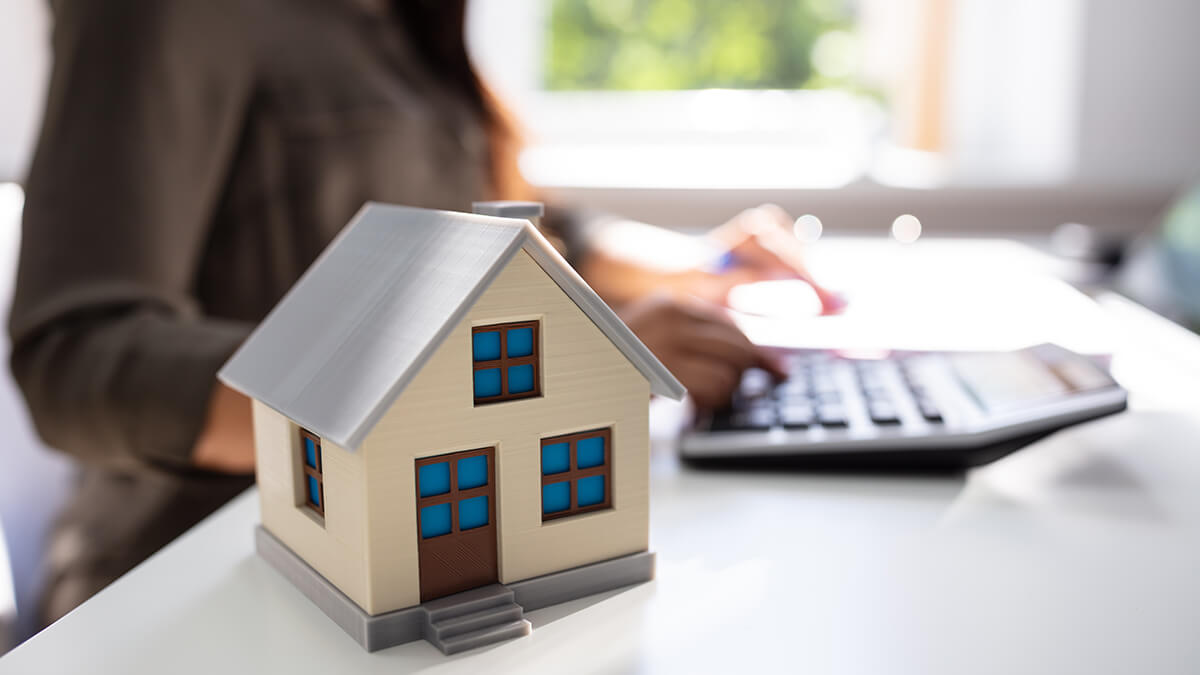Around 64% of U.S. citizens own real estate, but it’s often difficult to determine what factors affect a home’s value when it comes time to sell or buy. Some of these factors could include “bad” neighborhoods, high mortgage rates, lack of home maintenance, excessive carpet, or poorly executed upgrades.
In this guide, we’ll delve into some of the primary factors that can decrease property value.
For homeowners ready to maximize their home value, without having to invest in upgrades, repairs, and maintenance, visit iBuyer.com. We can provide multiple cash offers for your home in minutes.
What Brings Down Property Value?
Compare Cash Offers from Top Home Buyers. Delivered by Your Local iBuyer Certified Specialist.
One Expert, Multiple Offers, No Obligation.
What brings down property value? – Outside factors
When considering what brings down the value of a house, it’s important to know that there can be all different kinds of factors, and several of these go beyond the house itself.
1. Bad neighborhood
No matter how nice a home is, it can become very undesirable if it’s in a bad neighborhood. Things like high crime rates, poor schools, and a lack of amenities will generally result in potential buyers being less interested. All homes in the area will therefore be worth less than they would in a better neighborhood.
If a neighborhood has a reputation for being unsafe or undesirable, it can be difficult to sell a home there, even if the home itself is in good condition. Sometimes all it takes is just one individual in the neighborhood to lower the value of surrounding properties. Unfortunately, a neighbor that’s lowering property value is something that you can’t do too much about.
2. Address and postal code
The address and postal code of a home can also affect its value. Homes in more reputable neighborhoods tend to be worth more, so having a prestigious postal code can make more of a difference than many people realize.
Another factor is how easy it is to find a property. Homes with a street address that’s easy to find and remember will be more valuable, while the value can drop if a home is difficult to locate or has a hard-to-pronounce address.
3. Mortgage rates
The current state of the housing market and the economy as a whole can affect the value of homes. Higher mortgage rates can make it more difficult for buyers to afford to purchase a home. This can result in a decrease in demand for homes, leading to an overall decrease in home values.
4. Natural disasters
Homes that are located in areas prone to natural disasters, such as floods, hurricanes, or wildfires, will generally have lower values than homes in safer areas. This is because homes in these areas are at a greater risk of damage or destruction. Not only does this make them less desirable to live in, but it can often be more difficult to insure them.
5. Neighborhood foreclosures
This is another neighborhood-related factor – if multiple homes in an area are foreclosed upon, it can negatively impact the value of the remaining homes in that neighborhood.
Foreclosures can lead to a decline in property values and a decrease in demand for homes in the area. Neighborhoods with a high number of foreclosures are generally seen as less desirable, which may push the value of any homes there down even further.
6. Proximity to certain facilities or businesses
Everyone values convenience, so the proximity of a home to various facilities or businesses will affect its value. A home that’s close to a major highway or public transportation will generally be more valuable than a more remote property, as it affects how easy it is for people to get around.
Certain things can be located nearby which may cause the value of a home to go down. This includes things like factories, landfills, or other sources of pollution as they can have a negative impact on quality of life and might present potential health hazards. Noise is also a factor, so a home that’s close to a busy motorway, a railway line, or an airport will also often be less desirable.
What brings down property value? – Inside factors
Some of the most crucial factors influencing property value are to do with the house itself. One benefit here is that as an owner, you’ll have a good degree of control over these factors. As such, while they could lower the value of your property, you can also use them to your advantage to increase it.
1. Curb appeal
First impressions are crucial, and the curb appeal of a home can greatly affect its value. Curb appeal refers to the external appearance of a home including things like the paint, structure, and landscape. This can be one of the biggest factors that affect whether or not a potential buyer wants to take a closer look at a property.
A home with bad curb appeal will immediately put people off. Some typical things that can make the curb appeal of a home worse are things like an unkempt/overgrown yard or damage to the outside of the house.
Before putting your home up for sale, it may be worth taking some time to improve the curb appeal. Some things you can do include:
- Add a fresh coat of paint
- Install new lighting fixtures
- Hire a professional landscaper to get the front yard into better shape
- Clean the windows and siding
- Replace the front door with a newer one
It’s worth bearing in mind that all of these come at a cost. You should look into it to determine which of these are worthwhile to help you maximize your ROI.
2. Maintenance
Regardless of whether you’re planning on selling your house or not, one of the best pieces of property value advice anyone can give is that you should maintain your home. Proper maintenance is the best way to keep your home in good condition, which will ensure it’s comfortable to live in and will help you can get more for it if you decide to sell.
A home that hasn’t been properly maintained can end up with various issues such as a leaky roof, a broken HVAC system, or outdated appliances. This will always reduce the value. This is because buyers don’t want to have to deal with such issues when they move in.
If a buyer realizes a home has problems like these, they’re also likely to assume there are other problems that they might not be aware of. On top of this, it’s best to keep up with current trends to make your home more appealing.
A home that hasn’t been maintained probably won’t have been updated in many years either. People want modern amenities and finishes, so if yours is lacking these will have a lower value.
3. Too much clutter
Clutter may not seem like a huge issue – after all, it’s easy to have a clean-up and make things look much better. However, you want to make sure you get rid of any clutter before anyone comes to view your home.
If there’s a lot of mess around, it can make it difficult for potential buyers to envision themselves living there. This also doesn’t only come down to general mess and untidiness. A home that is filled with too much furniture, decorations, and personal items can make it seem less appealing to buyers.
You want a buyer to see it as their future home, rather than someone else’s current one. As such, items that are more unique to you and your family can make your home seem less desirable. This can apply to objects you have laying around, family photos on walls, unique ornaments, and more.
A property staging company can help with this. They’ll set your home up in a way that’s well-suited for sale. While you might think your home ends up looking a bit boring, things like generic furniture and neutral colors can help make it much easier to sell.
It’s also worth noting that it can be harder for people to get a good idea of the condition of your home if there’s clutter everywhere. Even if it’s in a good state it won’t matter much when people can’t tell.
4. Too much carpet
When it comes to factors that will lower the value of your home, some are obvious, and true in every case, but others are less expected. Carpets are all about personal preference, so you might think they wouldn’t have a huge impact on the value of a property. Too much of it, however, can often be unappealing to potential buyers.
There are various reasons that people don’t like carpets, such as the fact that they can be difficult to clean and maintain, and they can also trap odors and allergens. Homes with too much carpet can therefore be less desirable to potential buyers.
This will be even more significant if the carpet is in a bad state. Things like stains, tears, holes, or other signs of wear and tear will immediately put people off. As tastes change, certain carpets can also quickly become outdated, so those looking for a modern home will become less interested.
You should also bear in mind that there are some areas of a home where hardwood or tile flooring is more common. It’s not often you see carpet in a bathroom or a kitchen, for example. These can decrease the value of a home by a surprising amount.
5. Unnecessary or poorly made upgrades
You may think that all upgrades are a good thing, but this isn’t always the case. Unnecessary or poorly made upgrades can greatly reduce your home’s property value.
Some upgrades may not interest potential buyers, and when done poorly, they can indicate a lack of attention to detail. Bad upgrades may also indicate that the home’s construction is sub-par or that it hasn’t been maintained properly, potentially putting people off.
For example, a high-end luxury kitchen in a low-end neighborhood probably won’t appeal to many buyers in the area. It may also cost significantly more to install than it adds to the value of the home, making it a poor investment.
6. Interior aesthetics
Interior aesthetics play a major role in determining a home’s value. Poor aesthetics will naturally interest people less, so fewer people will consider buying it. This can relate to all kinds of things such as poor lighting, small or cramped rooms, and other issues with the home’s design and layout.
Buyers will look at an entire home and consider how everything works together. With that in mind, bathrooms and kitchens can often be the most important rooms to many buyers.Bathroom
A bathroom can quickly look outdated, so having one that doesn’t fit modern trends will have a sizable impact. Even if the rest of a home is perfect, an old-fashioned bathroom can be a make-or-break component for many buyers.Kitchen
Similarly, kitchens can quickly become outdated, and for many buyers, this will be an even bigger issue than an outdated bathroom. The state of your kitchen could well be the biggest factor when it comes to selling your home. Modern appliances will not only improve the look but make it more functional, which is always ideal.
It’s also important to note that both kitchens and bathrooms need to be kept clean. If either of them seems unhygienic, it will make your home much harder to sell to anyone
Get the best offer for your property from iBuyer.com
Now that you know what brings down property value, you can start to take action. When it comes time to sell your home, you will be glad for any previous work you’ve put in to make it more appealing to buyers.
The entire selling process can be incredibly long-winded and time-consuming. You can make things much quicker and easier, however, by using iBuyer. Simply enter your address and we’ll quickly be able to a cash offer, saving you a huge amount of time.
Click here to get a valuation for your home today.
Instant Valuation, Confidential Deals with a Certified iBuyer.com Specialist.
Sell Smart, Sell Fast, Get Sold. No Obligations.
Reilly Dzurick is a seasoned real estate agent at Get Land Florida, bringing over six years of industry experience to the vibrant Vero Beach market. She is known for her deep understanding of local real estate trends and her dedication to helping clients find their dream properties. Reilly’s journey in real estate is complemented by her academic background in Public Relations, Advertising, and Applied Communication from the University of North Florida.




